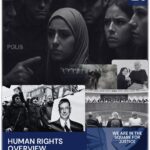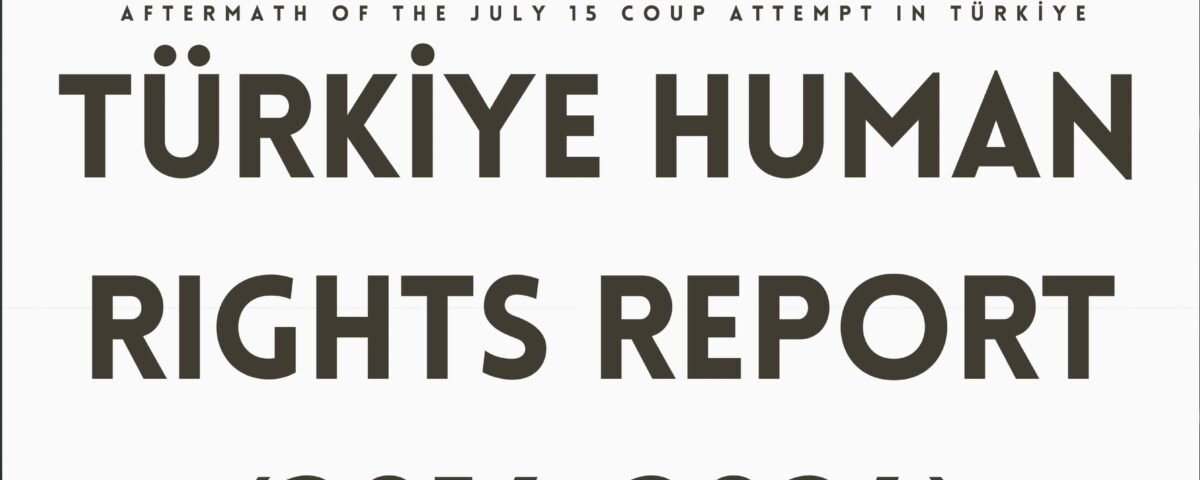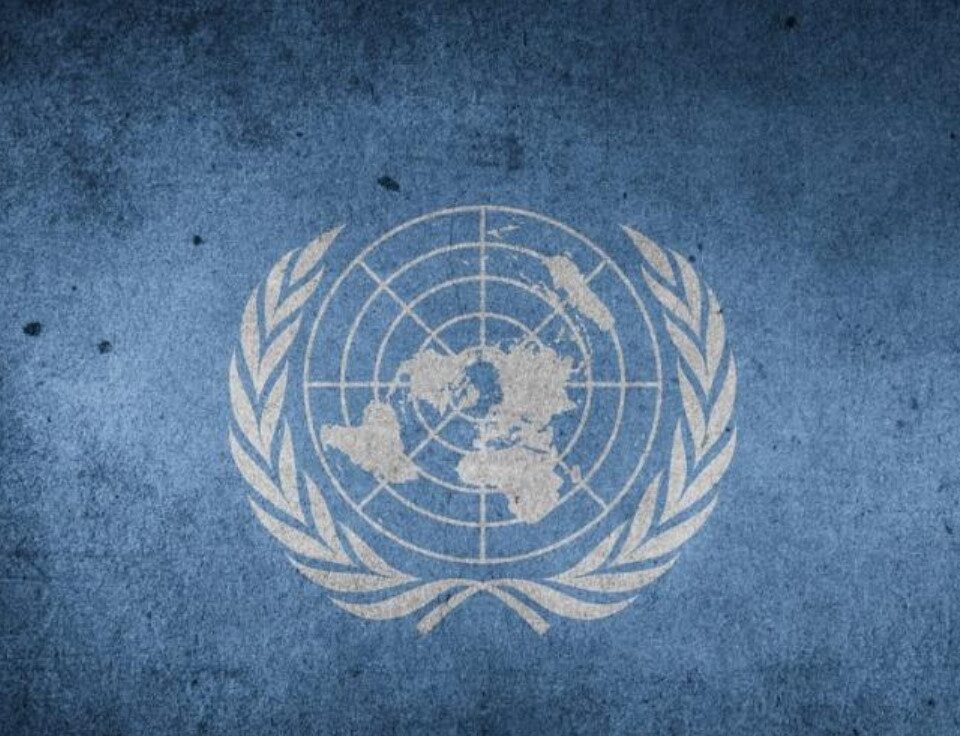
TURKISH JUDICIARY REPORT
23/06/2025
Human Rights Overview on Turkiye January-July 2025
31/07/2025TÜRKİYE HUMAN RIGHTS REPORT (2016-2024)
In an era marked by increasing authoritarianism and systematic repression, the Türkiye Human Rights Report, prepared by Stichting Justice Square, emerges as a critical document that sheds light on some of the gravest human rights violations in recent history. This report was not merely compiled to chronicle events; it was borne out of an urgent need to document a dark chapter in Türkiye’s political transformation—a time when law was suspended, and repression institutionalized. Its core objective is to present to the international community the comprehensive, evidence-based scope of the violations occurring in Türkiye, especially those amounting to crimes against humanity under international law.
The motivation behind this report lies in the increasing silence and normalization of state violence in Türkiye, particularly against the Gülen Movement and other opposition groups. Stichting Justice Square prepared this report to break that silence, to document crimes that many try to obscure, and to provide a powerful resource for advocacy, international accountability, and historical record.
The Context: From Democratic Decline to Regime Consolidation
The report starts by tracing the erosion of democratic values in Türkiye, culminating in the rise of a totalitarian regime under Recep Tayyip Erdoğan. The targeting of the Gülen Movement is portrayed not as an isolated event but as part of a broader pattern of suppressing pluralism and dissent. The regime’s antagonism toward the Movement intensified after the 2013 corruption investigations, eventually branding it as a terrorist entity.
July 15 Coup Attempt: A Pretext for Mass Repression
The failed coup attempt of July 15, 2016, widely questioned in its execution and aftermath, became the catalyst for the regime to unleash mass arrests, purges, and state violence. The report reveals how the coup was used to justify unprecedented detentions, state of emergency decrees, and structural legal reforms that dismantled democratic safeguards.
Eyewitness accounts and international media have pointed to the suspicious orchestration of the coup attempt. Figures like General Akın Öztürk and pilot Hüseyin Türk have made detailed claims of coercion and entrapment, many of which remain uninvestigated. The rapidity with which purges were executed afterward strongly suggests premeditation by the Erdoğan government.
Section Summaries and Key Findings
1.
Declaration of State of Emergency and Mass Dismissals
Over 130,000 public servants were dismissed via decree laws, without trial or
defense. Among them were 33,000 teachers, 5,882 academics, 4,156 judges and
prosecutors, and 24,706 police officers. Institutions ranging from schools to
media outlets were shut down. The economic and social devastation extended to
the families of the dismissed, who were ostracized, denied employment, and
deprived of passports.
2.
Mass Detentions and Arrests
Between 2016 and 2024, more than 690,000 people were subjected to judicial
proceedings linked to the Gülen Movement. As of 2024, over 122,000 were
convicted. Those arrested included teachers, doctors, engineers, homemakers,
and business owners. The use of Bank Asya accounts, the ByLock
messaging app, or affiliation with schools and charities was deemed sufficient
for terrorism charges.
3.
Torture and Inhumane Treatment
Documented cases of torture, rape, and strip searches show that physical and
psychological abuse is not only widespread but systematized. In one harrowing
case, Gökhan Açıkkollu, a teacher, died
under torture in custody. Other detainees were subjected to sexual violence,
electric shocks, and prolonged stress positions. Reports by Amnesty
International and Human Rights Watch substantiate these claims.
4.
Enforced Disappearances and Abductions
The report records at least 163 cases of abductions, both domestic and
international, of which 7 remain missing. Victims like Yusuf Bilge Tunç
have been missing for years. Eyewitnesses and family members report forced
disappearances in broad daylight, often involving black vans and
government-linked operatives. Turkish officials have acknowledged some
renditions, especially from countries like Kosovo and Malaysia.
5.
Conditions in Prisons and Detention Centers
Overcrowding, denial of medical care, and solitary confinement characterize
Turkish prisons. Women gave birth in handcuffs, and infants were raised behind
bars. Elderly and sick prisoners were often denied life-saving treatment. Among the most haunting chapters
of this report are the stories
of those who died not by accident,
but by neglect and cruelty. Mustafa
Kabakçıoğlu, a dismissed police officer, died in solitary confinement—slumped on a plastic chair, denied hospital care despite medical
referrals. Halime Gülsu, a teacher with an autoimmune condition, died in prison after being denied
life-saving medication. She had written, “If I don’t get
my meds, I will die.” No one
listened. Others, like Veysel
Atasoy and Mustafa Aykaç, faced their final moments handcuffed to hospital beds,
stripped of dignity even in death. These were not isolated failures—they were state policy.
The report shows how such treatment violates not only Turkish law,
but international conventions
against torture.
6.
Discrimination and Hate Speech
State-led campaigns against dissidents have normalized hate speech in official
institutions and the media. President Erdoğan personally referred to
Gülenists as “terrorist viruses.” Pro-government outlets like Yeni Şafak
and A Haber repeatedly broadcast dehumanizing content. These campaigns have
legitimized vigilante violence, workplace discrimination, and social exclusion.
7.
Judicial Transformation: From Independence to
Subjugation
The judicial system has been entirely reshaped to serve the regime’s interests.
Nearly half of Türkiye’s judges and prosecutors were dismissed and replaced
with loyalists. The Council of Judges and Prosecutors became a political
instrument. Trial outcomes are now determined more by executive preference than
by legal merit, especially in political cases. Following the declaration
of the state of emergency, Türkiye’s judiciary was fundamentally reengineered to serve the
ruling regime’s political goals. Approximately 4,500 judges
and prosecutors were dismissed through emergency decree laws, with
no opportunity to defend themselves.
This purge was followed by
the rapid recruitment of regime-loyal judicial personnel, effectively erasing the principle of separation of powers. The judicial vacuum
was filled with individuals selected for political
alignment rather than legal competence. As a result, courts increasingly functioned as tools of repression rather than instruments
of justice, with politically motivated rulings becoming standard practice. The transformation of the judiciary into
a regime-controlled apparatus
eliminated one of the final checks on authoritarian power.
8.
Crimes Against Humanity: Legal Framework and Evidence
The report asserts that the actions of the Erdoğan regime meet the
criteria for crimes against humanity as defined in Article 7 of the Rome
Statute. This includes mass persecution, torture, imprisonment, enforced
disappearances, and systemic discrimination. The documented pattern is not
incidental but deliberate—targeting an identifiable civilian population with
intent.
A Call for International Accountability
This report is not just a recounting of injustices; it is a call to action. The Türkiye Human Rights Report urges international institutions, legal bodies, and civil society to confront these violations with urgency. The silence of the international community risks legitimizing ongoing repression. Accountability must not remain a distant hope; it must become a global demand.
Stichting Justice Square insists that international mechanisms—such as the International Criminal Court, UN Working Groups, and European bodies—must investigate and take appropriate legal steps. These are not isolated incidents but evidence of systemic crimes against humanity. Failure to act will embolden authoritarian regimes globally.
Through documented testimonies, verified statistics, and legal analyses, this report serves as an indispensable resource in the global struggle for justice. Stichting Justice Square calls upon all who stand for human dignity and freedom to recognize that what is happening in Türkiye is not a domestic issue alone, but a global human rights crisis.
Let this report be not only a record of suffering but a foundation for future justice and a beacon of solidarity for all persecuted communities.



